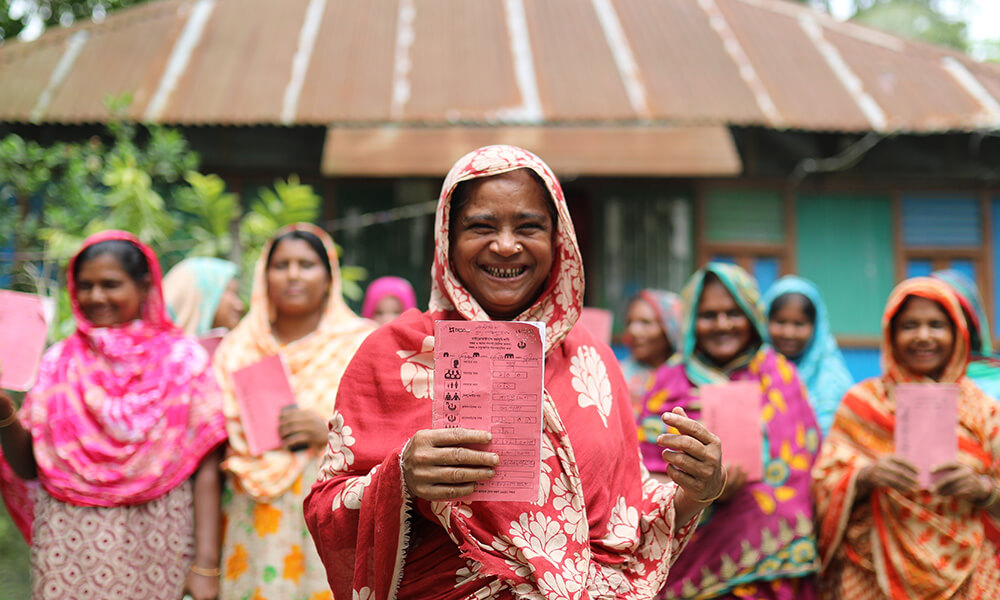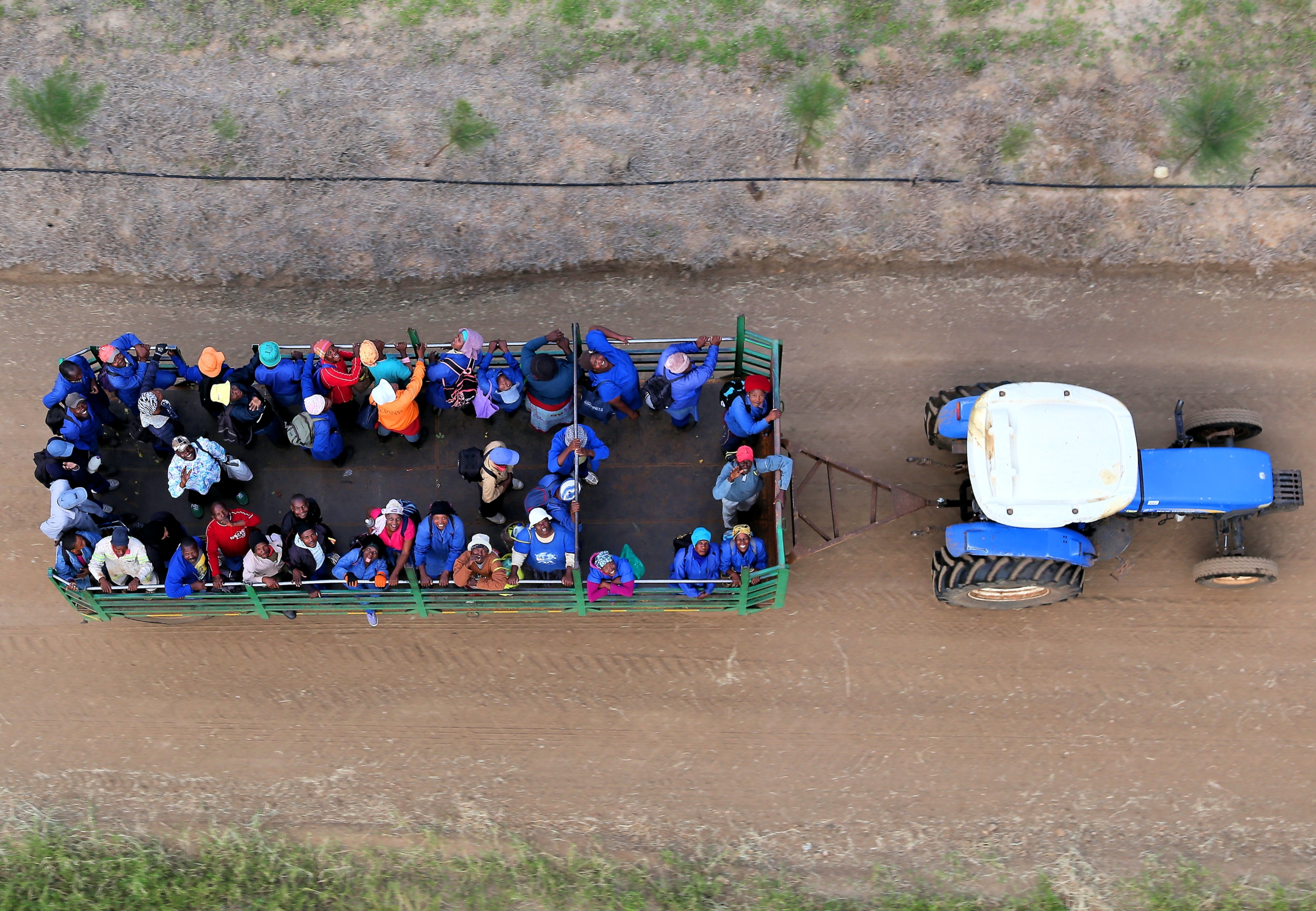

In Conversation With > Folu Okunade, CSO & COO of Hello Tractor
In a nutshell: Hello Tractor facilitates access to convenient and affordable tractor services for smallholder farmers, while providing additional income to the tractor owners. Hello Tractor used Lean Data to hear from 250 Nigerian farmers renting tractors through their platform to understand what unique challenges farmers were facing during COVID-19 and how the company could take action to support them.
Insights: The majority of farmers expressed concern about two primary challenges: unaffordable input prices and travel restrictions that were preventing access to markets. Platforms like Hello Tractor became key to meeting the changing needs of farmers during this crisis.
Action: After getting feedback on the overwhelming demand from farmers, Hello Tractor decided to fast-track their decision to expand their service offerings to include access to inputs, credit and other services such as soil testing. Providing these added services to farmers was previously a medium to long-term goal for the company.
Impact: Hello Tractor is currently piloting this last-mile distribution, alongside their core tractor services. The intended impact is to help farmers overcome the mobility restrictions and financial shocks caused by COVID-19.
Fun fact: Hello Tractor conducted their first Lean Data study in 2018. The results of their second study in 2020 revealed their Net Promoter Score (a measure of customer satisfaction and loyalty) had nearly quadrupled from 21 to 82 over those two years. The Hello Tractor team credits this improvement in customer satisfaction to the increase in tractor owners on their platform (the biggest challenge reported by farmers in 2018 was limited tractor availability). See page 28 of the Lean Data report!
Highlights from the 60dB Interview:
Q: Could you unpack how your business was affected by COVID-19?
Folu: The business and the operations are busier than before. Because of restrictions to movement, the normal labourers who would have done the work, mostly migrant labourers, were not available. It actually made tractors more attractive for the transport of agricultural goods.
However, I think some of the things 60 Decibels rightly pointed out is that cash becomes scarce during these times, so the ability to afford mechanization then becomes an issue. We saw this from the lowest level, in terms of farmers being able to access mechanization and also institutional investment.
Q: How did you engage with the 60 Decibels COVID-19 Agriculture Dashboard?
Folu: One of the really specific ways in which we engaged with the dashboard was to think through the additional services we could be offering to farmers, specifically at this time.
One of our medium to long term strategies is looking at how we go beyond just providing tractor services. We spoke to a ton of people and organizations on how we can plug our supply chains together for last mile distribution of inputs to the farmer using our tractor as well as booking agent network.
This is what we investigated last year using reports and dashboards like yours, which said farmers need cash and they need access to inputs. It’s a lot harder to get to shops for fertilizers and seeds and even if farmers do get there, some of those shops are even closed.
Q: When were you planning to offer these additional services to farmers?
Folu: We had originally planned to offer these services in the next two to three years and we were working to lay the groundwork for that. Once COVID happened, we started listening more to our farmers digitally and through telephone.
Your report came out and the dashboard came out, and it forced us to move forward on the ‘wrap-around’ holistic services for farmers a lot sooner than we expected. We didn’t start any pilots last year (2020) but we’re going to start them this year (2021) in terms of some of those additional services we have been talking to partners about.
We would like to use our network to expand beyond tractors and look at input distribution at the last mile, whether it is seeds or fertilizers, improving access to credit and savings organizations, training booking agents and farmers, soil management and testing, or being able to further advise farmers.
Q: Thanks Folu, that sounds incredible! What we found really fascinating was the impact of Hello Tractor’s platform is felt by multiple levels of users — the tractor owner, the booking agent, and the farmer. Is there anything else that you would like to learn about the impact Hello Tractor is creating or how users are experiencing the platform?
Folu: What I would love to happen is to do a similar study in Kenya. I’m always keen to learn. We’ve only just started our operations in Kenya, so I want to know what we can learn from our customers there, how we can better serve them, and how we can better reach them at their time of need.
Also, if there’s a way that we can broaden the definition of farmer and understand not only how satisfied the farmer is, but also how satisfied the tractor owner is as well, that would be interesting for me from a business perspective. I’d like to see an NPS score for the farmer borrowing the tractor and the NPS score for the tractor owners.
One of the things that we’re learning is that no matter how much advertising you do or what you post on social media, the most immediate way to make a sale is through referrals. Being able to have those tractor owners as Promoters, who can say “I use this product, I have seen it work in real time,” would be key for us as well in our growth.
The Lean Data study with farmers in Nigeria and the 60 Decibels COVID-19 Agriculture dashboard were generously funded by Mercy Corps AgriFin Accelerate (AFA) Programme and the Strengthening Impact Investing Markets in Agriculture (SIIMA) programme, through FCDO’s Research and Evidence Division.
Tune in to The Volume, 60 Decibels’ monthly collection of things worth reading.
